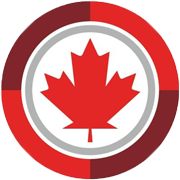Moving to another country is a life-changing journey with dreams, aspirations, and the promise of a bright future. Amidst the excitement, however, there is a practical consideration: the cost of living. Following foreign currency, debt, and monetary standards is important. How do you budget for housing, food, and daily necessities in an unfamiliar land? This guide explores the art of calculating the cost of living abroad.
We will delve into the factors that affect costs and provide practical strategies and tools for financial stability as an immigrant. Whether you’re looking for a job, an education, or a new head of household, understanding the cost of living is key to making the immigration experience satisfying. Join us on this journey where financial insight meets dream pursuit. You are welcome to estimate the cost of living abroad.
1. Housing Costs
Housing expenses often represent the largest portion of one’s budget. Costs can vary widely depending on the city or region. To estimate housing expenses, consider the following:
- Research Local Rental Markets: Utilize popular real estate websites, local classifieds, and real estate agents to investigate rental listings and property prices in different areas.
- Consider Housing Types: Understand that the type of housing you choose will impact costs. Apartments, houses, and shared accommodations all come with different price tags.
- Utilities: In addition to rent or mortgage, factor in utility costs such as electricity, water, heating, and internet. These costs can also differ based on location.
2. Transportation Expenses
Transportation costs can fluctuate significantly based on your chosen destination. To estimate them, consider the following:
- Public Transportation: Research the availability and cost of public transportation in the city or region. Consider monthly passes or season tickets for potential savings.
- Car Ownership: If you plan to own a car, account for expenses such as insurance, fuel, maintenance, and parking fees.
- Commuting: Understand commuting distances and costs, as living farther from the city center may result in lower housing expenses but higher transportation costs.
3. Food and Groceries
Food expenses can vary depending on the local cost of living and dietary preferences. To estimate these costs, consider the following:
- Market Prices: Visit local grocery stores or markets to get a sense of food prices in your destination. Take note of staple items and their costs.
- Dining Out: Research restaurant prices and dining-out habits in the area. Eating out frequently can significantly impact your budget.
4. Healthcare Costs
Healthcare costs are crucial to consider, especially if your destination country doesn’t provide universal healthcare. To estimate healthcare expenses, consider the following:
- Health Insurance: Research health insurance options and premiums. Ensure you understand the coverage provided and any out-of-pocket expenses.
- Medical Services: Inquire about the cost of medical appointments, prescriptions, and emergency care in the region.

5. Education Expenses
If you have children or plan to pursue further education, schooling costs are essential. To estimate education expenses, consider the following:
- School Fees: Research school fees for public and private institutions, including tuition, uniforms, and extracurricular activities.
- Higher Education: If pursuing higher education, calculate tuition fees, textbooks, and potential living expenses for students.
6. Leisure and Entertainment
Budgeting for leisure activities and entertainment is essential for maintaining a balanced lifestyle. To estimate these costs, consider the following:
- Entertainment Options: Investigate local entertainment options, such as movie theaters, sports events, and cultural activities. Consider memberships or passes for potential discounts.
- Hobbies and Interests: Factor in costs associated with your hobbies and interests, such as gym memberships, club fees, or equipment rentals.

7. Miscellaneous Expenses
Don’t forget to account for miscellaneous expenses, which can include clothing, personal care items, and unforeseen emergencies.
8. Creating Your Budget
Once you have gathered cost-of-living estimates for different regions or cities, it’s time to create your budget. Ensure that your income and savings align with your estimated expenses. Be realistic and conservative in your budgeting to accommodate unexpected costs or fluctuations in expenses.
Estimating the cost of living in different regions or cities of your destination country is a crucial step in your immigration planning process. By conducting thorough research and creating a detailed budget, you can make informed financial decisions, ensure a smooth transition, and focus on building a successful and fulfilling life in your new home. Remember that budgeting is an ongoing process, so periodically review and adjust your financial plan as needed to maintain financial stability and security. Understanding the cost of living in your destination country will help you plan your finances effectively and make the most out of your new life abroad.
Also Read: Singapore Tourist Visa




